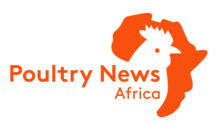Editor’s Note:
Dear Readers, welcome to the 4th edition of Poultry News Africa, our final issue of the year. We hope you find this edition engaging and informative. As we wrap up the year, preparations for our 2026 issues are already underway, focusing on key developments, events, and expos in the poultry sector.
Turn your attention to the Ethio Poultry Expo (Ethiopex), now in its 14th edition, showcasing the latest inputs, technologies, and solutions in poultry farming. This international trade show will take place at Millennium Hall in Addis Ababa from October 30 to November 1, attracting global players and key local stakeholders alike. Recognized as one of Africa’s fastest-growing economies, agriculture contributes a significant 34% to Ethiopia’s GDP.
Ethiopex serves as a reliable platform for exhibitors to connect with market influencers. Participants come from a diverse range of sectors within the poultry industry, including equipment and accessories, feeding technology, housing installations, health products, feed, farm inputs, and much more.
In this issue, we also take a closer look at the Poultry Sector Master Plan (PSMP), which was launched by the South African government six years ago. This initiative was designed to revive the country’s broiler value chain after facing serious challenges due to illegal import dumping. While the plan initially sparked hope and some positive developments, the South African Poultry Association (Sapa) now contends that the government’s failure to follow through on its commitments has left the sector feeling frustrated and struggling to make progress.
Additionally, we explore the remarkable strides made by Namibia’s poultry industry, which reached a production value of N$1.74 billion in 2024—an impressive 13 percent increase from the previous year’s N$1.5 billion, as reported by the Namibian Poultry Producers’ Association (PPA). This growth solidifies poultry as the second-largest agricultural contributor in Namibia, just behind the cattle sector, which generated approximately N$3.2 billion in 2024.
Collins Tallam
Editor-in-Chief


